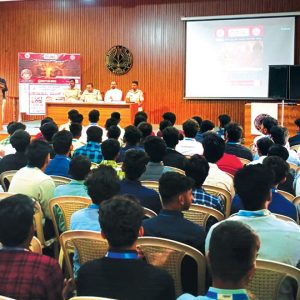The dictator of the erstwhile Soviet Union (1878-1953) is quoted having said: One death is a tragedy; One million deaths is a statistic. The currently estimated figure of average annual number of deaths per 1,000 people in India, namely 7.3, given the expression crude death rate, alongside the dictator’s quote, does little mitigate the sledge-hammer like strike on the minds of the near and dear ones of the departed amidst them. While kind words to assuage the stinging sadness caused to the bereaved like a bolt-from-the-blue as it were may be in place, expressing condolence invariably amounts to reminder of the tragedy. Blessed are the members of the-now-vanishing joint families and also those who live next door to empathising neighbours facing situations in the wake of the inevitable event sparing none.
Not withstanding the elementary fact that death is as certain as the sun rising in the east day after day, most people neither accept stoically nor prepare themselves to battle bereavement. Even talking openly about death as inauspicious is a feature of the land’s culture, contributing to a major extent both unpreparedness and mental strength to carry on in life, until the proverbial time acts as the healer.
Believing in the benign hand of providence to salvage the abruptly altered family scene is well-taken, understandably if that belief facilitates pro-active steps needed to restore stability to the wrecked ship called the family. That task is more easily talked about than pursued with courage and commitment. In this context, people have to thank the team of Mumbai-based Tata Institute of Social Sciences for carrying out an incisive study of psycho-social care in the country and publishing a white paper based on the study. Issues of inheritance, sharp changes in the lowered social status both within the family and society at large, traumatic stress bugging the surviving members of a family, particularly in cases of death of its patriarch and so on selected for focus by the team are areas that no family can afford to neglect.
The team of the Mumbai institution have rightly recommended that offering timely help to improve financial literacy is one of the crucial interventions in grief-support care. The families that battle bereavement without wilting will do well to take help from certified and competent Financial Planners. That is being rational in life.








Recent Comments